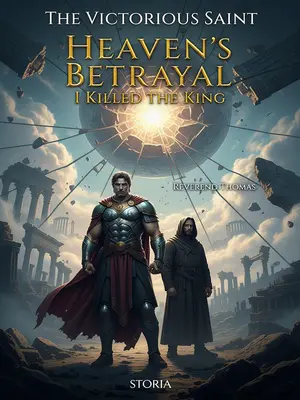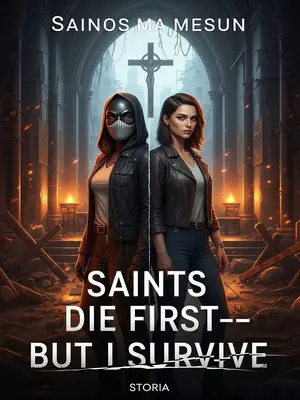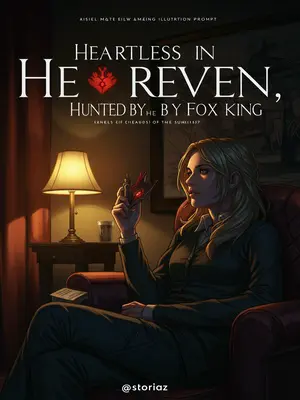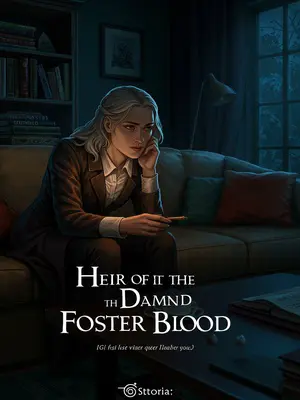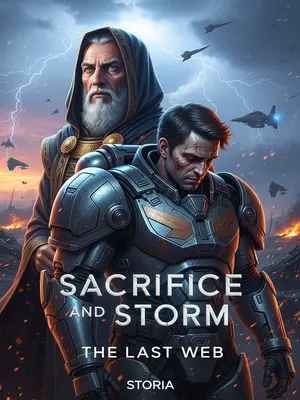Chapter 3: The Mask of Survival
“I’m watching you. If you ever can’t hold on, believe that I’ll come back to you.”
She thought I was lying, her eyes red as she threatened, if I left, I should never return, then cried,
“Quinn, don’t go. Please, I can hold on. It doesn’t hurt at all, really.”
Her fear washed over me. I looked at her with aching heart, and in her pain and desperate tears, I closed my eyes—reluctantly.
A promise must be kept.
Fourteen years later, on her saddest day,
I opened my eyes in her body.
I don’t know how a person can hold so much sorrow.
It felt like being trapped under a pitch-black sky, the endless sea and sky blurring together, no horizon in sight, just wave after wave of darkness crashing down.
Her heart felt like it was drowning.
But I heard her laughter.
At twenty-five, she sat in a lavishly decorated living room under a brilliant crystal chandelier, her skin as white as snow under the bright lights, makeup flawless.
She had grown up, her features now stunningly beautiful, and she was smiling.
The man standing before her—handsome and tall—looked at her coldly, unmoved by her beauty.
He looked down and said to Lillian, “Your face really disgusts me.”
What a cruel thing to say.
Lillian’s eyelashes trembled, but her smile didn’t falter, the curve of her lips perfect.
She smiled softly: “I’m really sorry, Carter,” her voice gentle, almost matter-of-fact, “but no matter how much you hate this face, you’ll have to look at it for the rest of your life.”
After Carter left, her smile remained.
Until I sighed and spoke inside her: “Lillian, you can stop smiling now.”
She paused, and her smile slowly froze.
No one knows how much time passed before she smiled again, and I saw tears glistening in her eyes.
She smiled, her tone light as a sigh, as if the fourteen years of separation had never happened.
She called me, “Quinn.”
I smiled and replied, “I’m here.”
Twenty-five-year-old Lillian was no longer the Lillian I remembered.
She used to cry easily, was timid, afraid of the dark, too soft-hearted and often bullied.
Now she liked to smile, her smile like a mask—flawless, every move smooth, practiced.
She told me about the past fourteen years.
She said she’d learned many ways to protect herself in that predatory, complicated family.
She learned to smile gently and harmlessly to get what she wanted.
For example, when she was eighteen and her stepmother got pregnant, she tampered with the car so her stepmother nearly died in an accident. Then she brushed a thin layer of olive oil on the grand spiral staircase at home, and stood at the top, coldly watching her stepmother slip and tumble down, step by step.
She smiled and told me, her tone gentle: “Quinn, you didn’t see the blood beneath her. It was beautiful.”
Or when she was nineteen, she seduced her drunken, muddle-headed stepbrother in the living room. When he lost control and tried to assault her, her busy father ‘just happened’ to come home, saw the scene, and flew into a rage. She cried in fright, hid behind him fixing her torn clothes, and no one saw the smile hidden at the corner of her lips.
“After that creep was sent away, he never appeared before me again. Quinn, your methods were too gentle. This is the only way to end things once and for all, isn’t it?”
Or when she was twenty-one, she brought home her beautiful but indecisive roommate, who always wanted shortcuts, and just happened to run into her father. After that, her stepmother lost favor completely, and her roommate clung to her arm, smiling sweetly: “Lillian, your father said he’ll divorce and marry me. Don’t worry, I’ve got your back.”
She really did listen, at least ensuring that after graduation, Lillian smoothly entered the company and began taking over the business.
She told me many things, and I stayed silent.
Maybe because I didn’t respond, her tone faded until she was expressionless: “Quinn, do you think I’m... like he says? Scheming, venomous?”
She sat quietly in front of the mirror, reached out to touch her reflection, and asked me, “Quinn, do you think I’m scary too?”
I sighed, my voice calm. “Lillian, you must have suffered a lot, being alone all these years, right?”
I’m not sentimental, but I couldn’t help feeling sorry for her. I smiled at her in the mirror. “I’m proud of you, Lillian. Really, I’m glad you learned how to protect yourself.”
She was stunned.
“So, tell me—who made you so sad?” I changed the subject, my tone turning cold.
Yeah, twenty-five-year-old Lillian had grown into someone I admired, but I hadn’t forgotten—every time I appeared, it meant she was in pain.
Extreme, desperate, unbearable pain.
I thought of Carter’s cold, indifferent look, and the words: “Your face really disgusts me.”
I couldn’t help but sneer and ask her, “Do you like him?”
Only when you love someone do you give them the power to hurt you.
Even the now iron-hearted Lillian was troubled by love.
She had no need to pretend in front of me. I watched her let down her guard, her face showing a confused, sad, childlike bewilderment, and she asked me, “Quinn, I’ve been so good to him. Why doesn’t he like me?”
Carter was her fiancé. They’d gotten engaged three years ago—a business marriage.
Three years ago, Carter’s father died suddenly in a car accident, leaving him with the family business.




